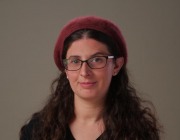Between 2011-2016, I conducted an extensive multi-sited ethnographic study of ethical decision-making among Orthodox Jews in Israel. This research project examined the ways Orthodox couples engaged with religious authorities as part of their reproductive decision-making. On the one hand, having a large family was a well-established communal norm that had turned into a personal dream early on in the life of religious members. On the other hand, shifting forms of Israel’s reproductive governance makes the process of actualizing these high fertility ideals and pressures almost unattainable. This paradox and the ethical uncertainty it creates among Orthodox Jews is at the heart of this research project.
Based on this ethnographic research, I illustrate how religious consultation serves as an ethical compass amidst ethical uncertainty. “A Rabbi of One’s Own? Navigating Religious Authority and Ethical Freedom in Everyday Judaism”, American Anthropologist (2021), demonstrates how religious consultation serves many purposes – it provides an ethical language, a ‘kosher’ space to discuss taboo-like topics, as well as a form of authoritative mediation for couples in conflict. I show how the process of consultation was more significant than mere submission to religious rulings. Religious consultation, in itself, constitutes a significant node for making an ethical Jewish life.
“Conceiving Gods’ Children: Toward a Flexible Model of Reproductive Decision-Making”, Medical Anthropology (2019), explores the multiple ways access to technology affects religious belief and observance. “Flexible decision-making,” demonstrates how couples push off and welcome pregnancies simultaneously, thus unravelling the illusion of a binary model of planned/unplanned parenthood.

